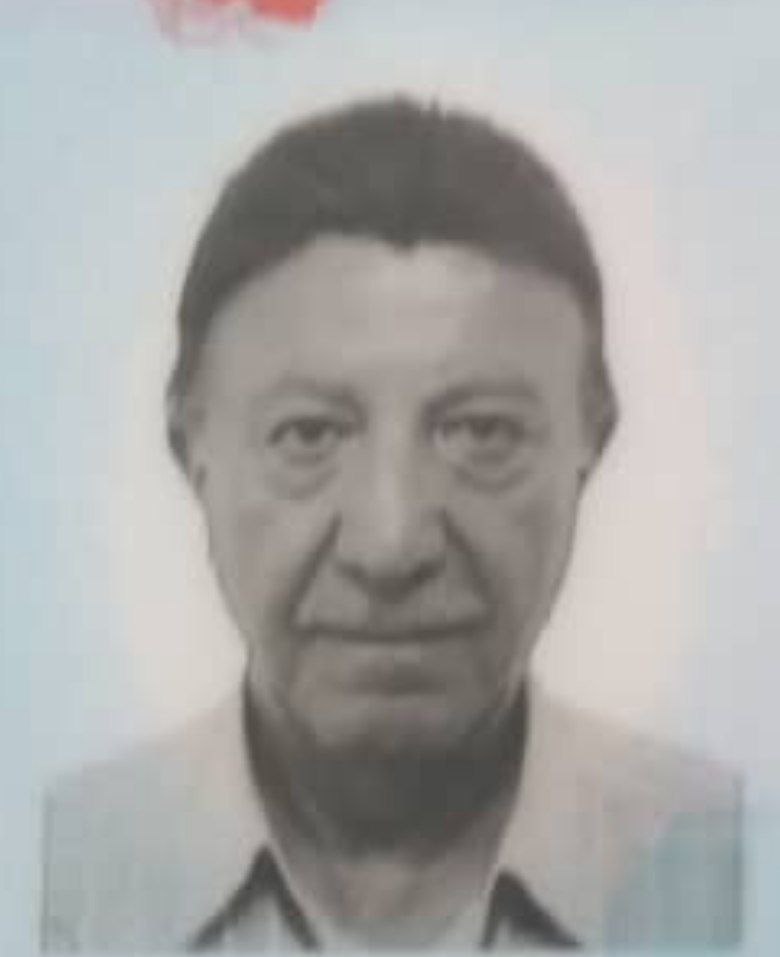The Role of Temperament and Character in the Formation of Dark Tetrad Personality Traits with the Mediating Effect of Ambition in Managers of Tabriz City
Keywords:
Temperament and Character, Dark Tetrad Personality Traits, Ambition, ManagersAbstract
Background and Objective: The complex and competitive conditions of today's organizations have increased attention to some negative characteristics such as the dark tetrad personality traits. As a result, this study was conducted with the aim of determining the role of temperament and character in the formation of dark tetrad personality traits with the mediating effect of ambition in managers of Tabriz city.
Methods and Materials: This research in terms of purpose was practical and in terms of implementation method was descriptive from type of correlational. The statistical population of this study was all managers of the government offices of Tabriz city in 2024 year with number of 8280 people. The sample size based on the Krejcie and Morgan table and according to the possible dropout was determined 420 people, which this number was selected by available sampling method and in this research there were 39 missing questionnaires. To collect data were used the temperament and character questionnaire (Cloninger, 1994), dark tetrad personality traits scale (Plouffe et al., 2017) and ambition questionnaire (Bot, 2017), and for data analysis were used the Pearson correlation coefficients and structural equation modeling methods in SPSS and Smart-PLS software.
Findings: The results showed that the model of temperament and character in the formation of dark tetrad personality traits with the mediating effect of ambition in managers had a good fit. Also, the direct effect of temperament on ambition and dark tetrad personality traits was negative and significant, the direct effect of character on ambition was positive and significant and on dark tetrad personality traits was negative and significant and the direct effect of ambition on dark tetrad personality traits was positive and significant (P<0.01). In addition, the indirect effect of temperament and character on dark tetrad personality traits with the mediating of ambition was negative and significant (P<0.01).
Conclusion: According to the mentioned results, in order to reduce the dark tetrad personality traits of managers should be designed and implemented programs based on the temperament and character and ambition.
Downloads
References
Adeel, A., Kee, D. M. H., Mubashir, A. S., Samad, S., & Daghriri, Y. Q. (2023). Leaders’ ambition and followers’ cheating behavior: The role of performance pressure and leader identification. Frontiers in Psychology, 14(982328), 1-14. https://doi.org/10.3389%2Ffpsyg.2023.982328
Ahmadi-Azar, P., & Jahan, F. (2021). Wisdom and temperament, emotions, and the three dark personality traits: A structural equation model. Contemporary Psychology, 14(2), 60-70. http://dx.doi.org/10.29252/bjcp.14.2.61
Alzahawi, S., Reit, E. S., & Flynn, F. J. (2024). A legend in one's own mind: The link between ambition and leadership evaluations. PNAS Nexus, 3(8), 1-10. https://doi.org/10.1093%2Fpnasnexus%2Fpgae295
Amiri, S., & Jamali, Y. (2019). The mediating role of empathy and emotion regulation in attachment styles and dark personality traits in adolescents. Iranian Journal of Psychiatry & Clinical Psychology, 25(3), 292-307. http://dx.doi.org/10.32598/ijpcp.25.3.292
Blais, J., & Pruysers, S. (2017). The power of the dark side: personality, the dark triad, and political ambition. Personality and Individual Differences, 113, 167-172. https://doi.org/10.1016/j.paid.2017.03.029
Bot, D. (2017). Are women really lacking ambition? A quantitative study focusing on a broader perspective of ambition. Dissertation, Tilburg University. https://arno.uvt.nl/show.cgi?fid=143481
Brzozowski, S. L., Cho, H., Shuman, C. J., Scott, L. D., Mundt, M. P., & Steege, L. M. (2022). Primary care nurses' perception of leadership and the influence of individual and work setting characteristics: A descriptive study. Journal of Nursing Management, 30(7), 2751-2762. https://doi.org/10.1111%2Fjonm.13752
Cesinger, B., Gundolf, K., Hughes, M., Khedhaouria, A., & Montani, F. (2023). The bright and dark sides of the dark triad traits among senior managers: effects on organizational commitment. Review of Managerial Science, 17, 1731-1763. https://doi.org/10.1007/s11846-022-00571-3
Chelbyanloo, G., Mardani, L., & Alinejhad, S. (2019). Relationship of temperament-character, abnormal dimensions of personality, and self-control with addiction tendency in university students. Research on Addiction, 12(50), 193-212. https://etiadpajohi.ir/article-1-1832-en.html
Cloninger, C. R. (1994). The genetic structure of personality and learning: A phylogenetic model. Clinical Genetics, 46(1), 124-137. https://doi.org/10.1111/j.1399-0004.1994.tb04214.x
Eley, D. S., Bansal, V., Cloninger, C. R., & Leung, J. (2023). Temperament and character in an Australian sample: examining cross-sectional associations of personality with age, sex, and satisfaction with life. Peer Journal, 11(e15342), 1-22. https://doi.org/10.7717%2Fpeerj.15342
Fountoulakis, K. N., & Gonda, X. (2019). Modeling human temperament and character on the basis of combined theoretical approaches. Annals of General Psychiatry, 18(21), 1-14. https://doi.org/10.1186%2Fs12991-019-0247-1
Iyer, G., Cui, R., Edmonds, J., Fawcett, A., Hultman, N., McJeon, H., & Ou, Y. (2023). Taking stock of nationally determined contributions: Continued ratcheting of ambition is critical to limit global warming to 1.5°C. One Earth, 6, 1089-1092. https://doi.org/10.1016%2Fj.oneear.2023.08.019
Javaezi Shishavan, M., & Zeinali, A. (2022). The role of emotional schemas and temperament and character in shaping the dark tetrad personality traits. Rooyesh-e-Ravanshenasi, 11(5), 1-12. https://frooyesh.ir/article-1-3669-en.html
Kong, L., Liu, Y., Ding, H., Liu, S., & Yu, S. (2024). The impact of empowering leadership on taking charge behaviors: Mediating strengths use and moderating ambition. Behavioral Sciences, 14(633), 1-17. https://doi.org/10.3390%2Fbs14080633
Lassche, M. M., Lasogga, L., De Roos, M. S., Leeflang, A., Ajazi, V., Axioti, M., & et al. (2024). Dark tetrad personality traits, paraphilic interests, and the role of impulsivity: an EEG-study using a Go/No-Go paradigm. Scientific Reports, 14(10884), 1-11. https://doi.org/10.1038%2Fs41598-024-61214-z
Lavoie-Tremblay, M., Boies, K., Clausen, C., Frechette, J., Manning, K., Gelsomini, C., & et al. (2024). Evaluation of the effectiveness of a strengths-based nursing and healthcare leadership program aimed at building leadership capacity: A concurrent mixed-methods study. International Journal of Nursing Studies Advances, 6(100184), 1-13. https://doi.org/10.1016%2Fj.ijnsa.2024.100184
Lu, X., Hisada, A., Anai, A., Nakashita, C., Masuda, S., Fujiwara, Y., Kunugita, N., & Katoh, T. (2020). Study of the correlation between multiple chemical sensitivity and personality using the quick environmental exposure sensitivity inventory questionnaire and the temperament and character inventory. Journal of Occupational and Environmental Medicine, 62(7), 348-354. https://doi.org/10.1097%2FJOM.0000000000001899
Moore, R. C., Hussain, M. A., Watson, C. W. M., Fazeli, P. L., Marquine, M. J., Yarns, B. C., & et al. (2018). Grit and ambition are associated with better neurocognitive and everyday functioning among adults infected with HIV. AIDS and Behavior, 22(10), 3214-3225. https://doi.org/10.1007%2Fs10461-018-2061-1
Peterson, R. D., & Palmer, C. L. (2022). The dark triad and nascent political ambition. Journal of Elections, Public Opinion and Parties, 32(2), 275-296. https://doi.org/10.1080/17457289.2019.1660354
Plouffe, R. A., Saklofske, D. H., & Smith, M. M. (2017). The assessment of sadistic personality: Preliminary psychometric evidence for a new measure. Personality and Individual Differences, 104, 166-171. https://doi.org/10.1016/j.paid.2016.07.043
Ramos-Villagrasa, P. J., Fernandez-Del-Rio, E., & Castro, A. (2022). Analysis of a brief biodata scale as a predictor of job performance and its incremental validity over the Big Five and Dark Tetrad personality traits. PLOS ONE, 17(9), e0274878, 1-15. https://doi.org/10.1371%2Fjournal.pone.0274878
Sanatjou, S., Bakhshipour Roudsari, A., Hashemi Nosrat Abad, T., & Mahmoudalilou, M. (2023). Structural relationships between brain-behavior systems and Cloninger temperament and character model with tetrad dark sides of personality. Journal of Adolescent and Youth Psychological Studies, 4(9), 79-88. https://doi.org/10.61838/kman.jayps.4.9.9
Schroder, M., Seker, S., D’Huart, D., Izat, Y., Bolten, M., Schmeck, K., & Schmid, M. (2022). The relationship of temperament and character, parental stress, and mental health problems with attachment disorders among children. International Journal of Environmental Research and Public Health, 19(15458), 1-14. https://doi.org/10.3390%2Fijerph192315458
Ubaradka, A., & Khanganba, S. P. (2024). The differential effect of psychopathy on active and bystander trolling behaviors: the role of dark tetrad traits and lower agreeableness. Scientific Reports, 14(9905), 1-12. https://doi.org/10.1038%2Fs41598-024-60203-6
Uygur, A. B., Oktem, E. O., & Celik, S. (2022). Evaluation of temperament and character traits and their subscale dimensions associated with major depressive disorder. The Medical Bulletine of Sisili Etfal Hospital, 56(1), 96-106. https://doi.org/10.14744%2FSEMB.2021.75031



























